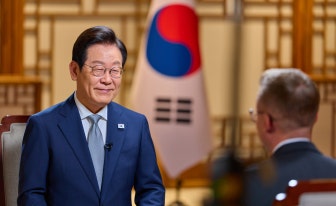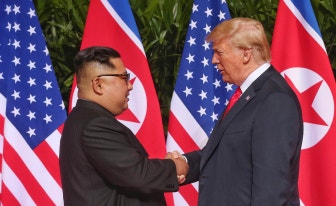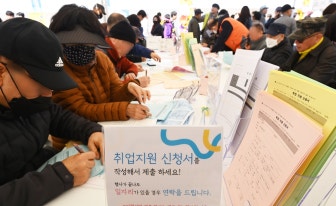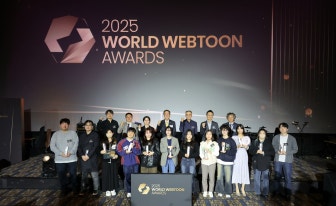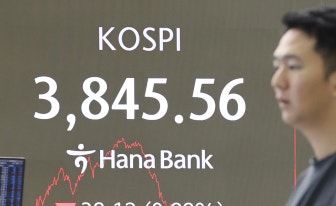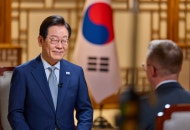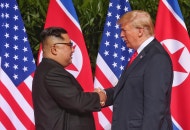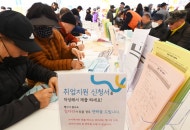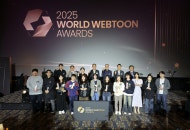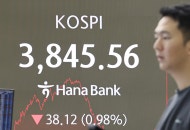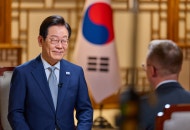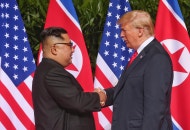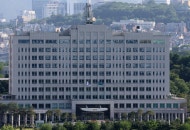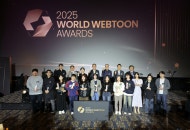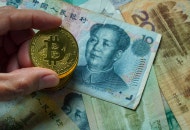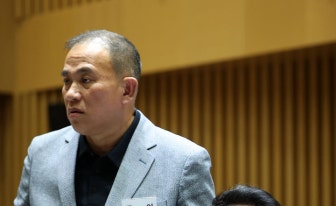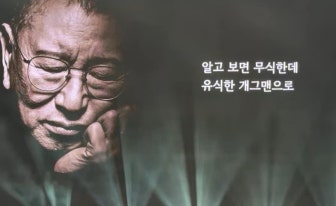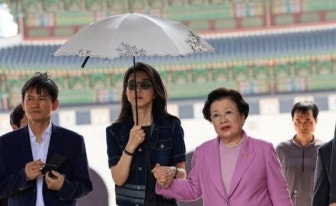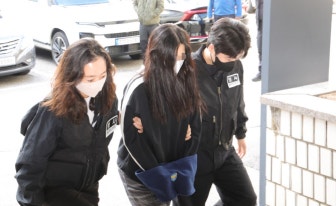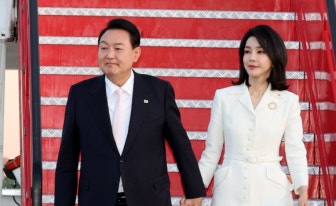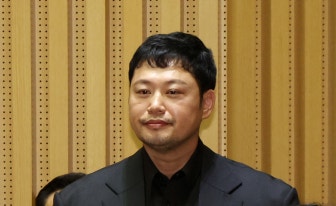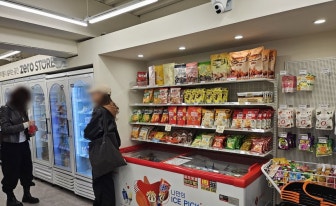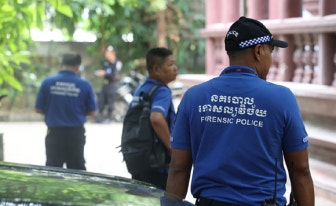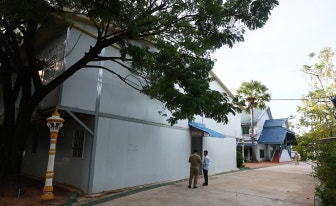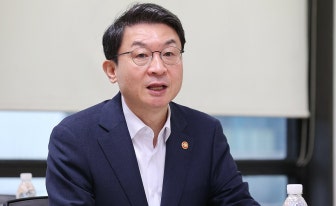| Prime Minister Kim Min-seok peaks during a plenary session of the National Assembly in Seoul on Tuesday to respond to questions relating to diplomacy, inter-Korean reunification and security by Rep. Bae June-young of the main opposition People Power Party. (Yonhap) |
Seoul will seek National Assembly approval for its $350 billion investment package in the United States if the final deal negotiated with Washington carries a significant fiscal burden, Prime Minister Kim Min-seok said Tuesday.
Seoul and Washington have been holding follow-up negotiations to narrow differences over the investment package — including profit-sharing arrangements and the fund’s structure — a centerpiece of the tariff deal clinched in late July.
“It is too early to say for certain. The consent of the National Assembly may be necessary once the negotiations move forward and a conclusion is reached,” Kim said during the Assembly’s interpellation.
"There is a provision (in the Constitution) that requires obtaining (the Assembly’s) consent on parts that may impose a fiscal burden, even if it is not in the form of a treaty that requires consent. If that is the case, I think we must go through the process of requesting and seeking the National Assembly’s consent.”
Kim did not provide further details. However, Article 60 of South Korea’s Constitution stipulates that the National Assembly shall have the right to consent to “treaties which will burden the State or people with an important financial obligation.”
Foreign Minister Cho Hyun also gave an affirmative answer when asked if he agreed that the Lee Jae Myung administration should fully explain the US investment plan to the public — who will ultimately share the burden as taxpayers — and seek consent through National Assembly ratification or an equivalent procedure.
“I agree. I would like to add that we have made that opinion clear to the US side as well (during negotiations),” Cho said during the Assembly’s interpellation.
Cho further brushed off concerns that Seoul and Washington have opted to use a non-binding memorandum of understanding as a framework to operate Korea’s investment package in order to bypass Assembly ratification.
“I don’t think that is the case,” Cho answered. “That is to say, regardless of whether it takes the form of an MOU or something else, if it involves a burden on the public, it is naturally our government’s position that we must come to the National Assembly, explain it, and seek its consent.”
Following the Aug. 25 South Korea-US summit in Washington, Presidential Chief of Staff for Policy Kim Yong-beom said the two countries agreed to set up and operate the $350 billion financial package under a memorandum instead of a legally binding treaty.
On the reasons for the delays in the follow-up tariff negotiations, Cho explained, “The talks have not been swiftly concluded because the proposals presented by the US are difficult for our government to accept at this stage.”
Cho elaborated that the Lee administration could not accept the US-proposed investment package deal at the time of the first summit between Lee and Trump, saying that “not signing the document was, rather, a way to protect the national interest.”
“Had we formalized the deal as it stood at the time, it would have contained worrisome elements that could have left a significant wrinkle in our economy,” Cho added.
Cho also acknowledged that the Lee administration has floated the idea of reviving a Korea–US unlimited currency swap as a counterproposal amid Washington’s demands that Seoul increase the share of direct cash contributions in the $350 billion investment fund.
Cho responded, “I cannot go into every detail of the negotiations at this point, but I can tell you that it is among the various proposals we have put forward," when asked to confirm whether Seoul had requested such a swap.
Seoul’s push for a swap line shows its concerns over potential shocks to the foreign exchange market. This concern follows Washington’s request to increase the share of cash contributions in the investment fund.
As of late August, South Korea’s foreign reserves were at $416.3 billion, which means the $350 billion investment package would make up 84 percent of that total. Such a large commitment has led Seoul to pursue what it sees as an important financial safety net, effectively leading to its call for the reinstatement of the Korea-US currency swap agreement, which expired in 2021.

